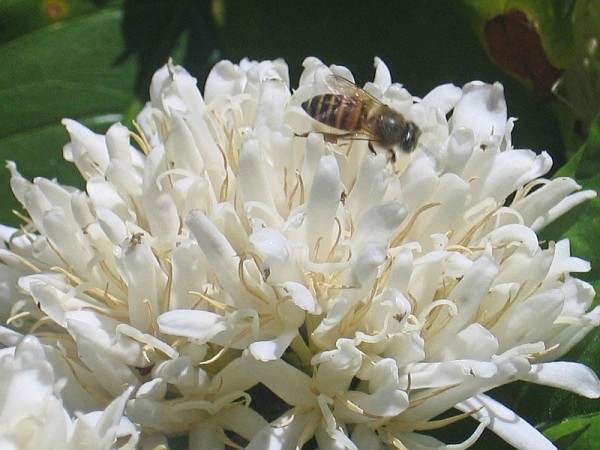When birds, bats, bees and butterflies — a harmonious combination of pest predators and pollinators — have access to coffee plants, yields are higher and fruits are heavier. This according to a new study led by a team of German researchers testing coffee plants on Mount Kilimanjaro in Tanzania.
The study of the maintenance of natural habitat and biodiversity on coffee growing has flourished in recent years, with researchers from Stanford on Costa Rican coffee farms helping lead the way. (For more reading on this topic, check out Julie Craves’ Coffee & Conservation blog). But only recently have studies begun to focus on the quantitative benefits of biodiversity, as plantations proliferate and as natural habitat is lost to make way for higher densities of sun-grown, heat-resistant varietals.
(more: Coffee and Climate Science: An Inconvenient Truth)
This latest research is the first to try to quantify the simultaneous effects of pest predators (birds and bats) and pollinators (bees, butterflies), on coffee yields and quality. The study’s lead author, Professor Ingolf Steffan-Dewenter, writes:
Here the sun-shy coffee trees and many other crop plants thrive in the shade of banana trees and other tall trees. However, the largest part of the coffee is grown on plantations. Usually, the plantations still feature a large number of shade trees. But these are progressively being chopped down because of the increasing replacement of conventional coffee varieties, which rely on shade, by varieties that tolerate lots of sun and are more resistant to fungi.
The problem?
This crop intensification is expected to result in higher yields. The plantation harvests might however stagnate: If there are only few shade trees left, the habitat may become unsuitable for the animal species that pollinate the coffee, eat pests, and thereby help to improve the yield.
(more: Caribou-to-Peet’s Conversion May Be a Sustainability Backslide)
The research team used finely woven nets to prevent or allow access to coffee plants in three separate coffee growing ecosystems found on Kilimanjaro: Chagga gardens, shade plantations and sun plantations. They found that the plantations that were accessed by pest predator birds and bats produced a 10 percent higher yield on average, as fewer leaves were destroyed, causing fruit to ripen prematurely. They also made some groundbreaking discoveries regarding pollination:
Bees and other insects should actually be redundant here, as the examined coffee variety, Coffea arabica, is self-pollinating. Yet, the researchers found that if pollinators have access to the coffee blossoms, the cherries were about seven percent heavier, which contributes to a higher coffee quality.
Nick Brown
Nick Brown is the editor of Daily Coffee News by Roast Magazine.
Comment
2 Comments
Comments are closed.







Interesting! WWF did a similar study in Costa Rica about 9 years ago and came up with the same conclusion. My elders in Dota always claimed that they could tell how plentiful the harvest was going to be by listening to the buzzing coming from the plantation so I guess there is plenty of data to back them up now.
Back in 1996 the Smithsonian Migratory Bird Center held the first Sustainable Coffee Conference and from that conference “Shade Grown Coffee” replaced the phrase used for so long by major coffee companies “Mountain Grown Coffee”. That was 18 years ago !
I took that information and partnered with The American Birding Association to create iSongBird Coffee as a fund raiser for the ABA’s Birders Exchange , their Division that sends ornthological research equipment to countries that have no ability to fund such research tools as microscopes, Binoculars and cameras.
Shade grown coffee was the key concept that changed the Sustainable focus from Organic(good for healthy consuming of coffee) to preservation (to support migratory song bird Habitat. Shade grown coffeeis all about Climate Change mitigation
Paul Katzeff as well as saving songbird habitat.
CEO
Thanksgiving coffee Company